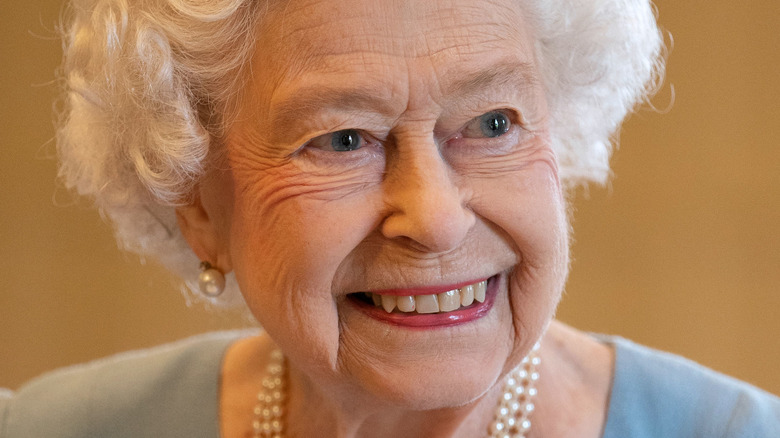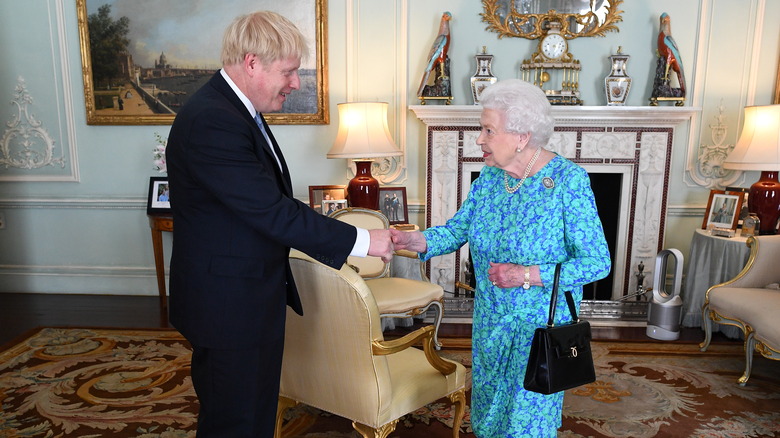Queen Elizabeth's COVID-19 Diagnosis Couldn't Come At More Awkward Time
Since the beginning of the pandemic in 2020, Queen Elizabeth had managed to steer clear of COVID-19 — until now. Buckingham Palace released a statement on February 20 that Britain's ruling monarch had contracted and was experiencing "mild cold-like symptoms." They confirmed (via BBC), "She will continue to receive medical attention and will follow all the appropriate guidelines." The news of the queen's COVID-19 diagnosis comes ten days after Prince Charles tested positive. He had seen the queen just two days prior to his diagnosis. Shortly afterward, Camilla, the Duchess of Cornwall, also confirmed that she had contracted COVID-19.
When news of Queen Elizabeth's condition broke, Buckingham Palace also stated that she would continue with "light duties" while recovering. However, NBC News reports that the nonagenarian has already had to cancel her virtual engagements, seemingly because of her health. Of course, this puts the spotlight on Prime Minister Boris Johnson's new regulations regarding lifting the previous pandemic-related restrictions. Here's how the queen's diagnosis and the prime minister's "living with COVID" plan clashed.
Queen Elizabeth's COVID-19 diagnosis comes when Boris Johnson lifts restrictions
On February 21, one day after Queen Elizabeth confirmed that she had tested positive for the virus, Prime Minister Boris Johnson stated that English citizens no longer need to self-isolate after contracting the virus. He tweeted, "Covid will not suddenly disappear." He stated that "those who would wait for a total end to this war before lifting the remaining regulations would be restricting the liberties of the British people for a long time to come," per NBC News. He added, "Restrictions pose a heavy toll on our economy, our society, our mental well-being and on the life chances of our children — and we do not need to pay that cost any longer." Johnson could only lift the restrictions for England, because Scotland, North Ireland, and Wales have their own health policy and regulations in place.
Per The New York Times, the new "living with COVID" plan will allow more autonomy for those who had been diagnosed with the virus. While they would be asked to avoid contact with others, there would no longer be legal sanctions in place for those who choose not to comply. Although the timing was a tad awkward, Queen Elizabeth has opted to self-isolate. Johnson also reached out to the monarch, per Twitter, saying, "I'm sure I speak for everyone in wishing Her Majesty The Queen a swift recovery from Covid and a rapid return to vibrant good health." We too wish the queen a speedy recovery.


